Fabric takes up shelves’ worth of space in Kate Caufield’s South Reno atelier. The studio, which has produced local theater costumes, custom cosplays, bridal wear and alterations of all kinds, is tucked into a loft on the second floor of Caufield’s mom’s house.
The room’s closet, Caufield told the Sagebrush, is overflowing with costumes. Its doors are blocked with mountains more.
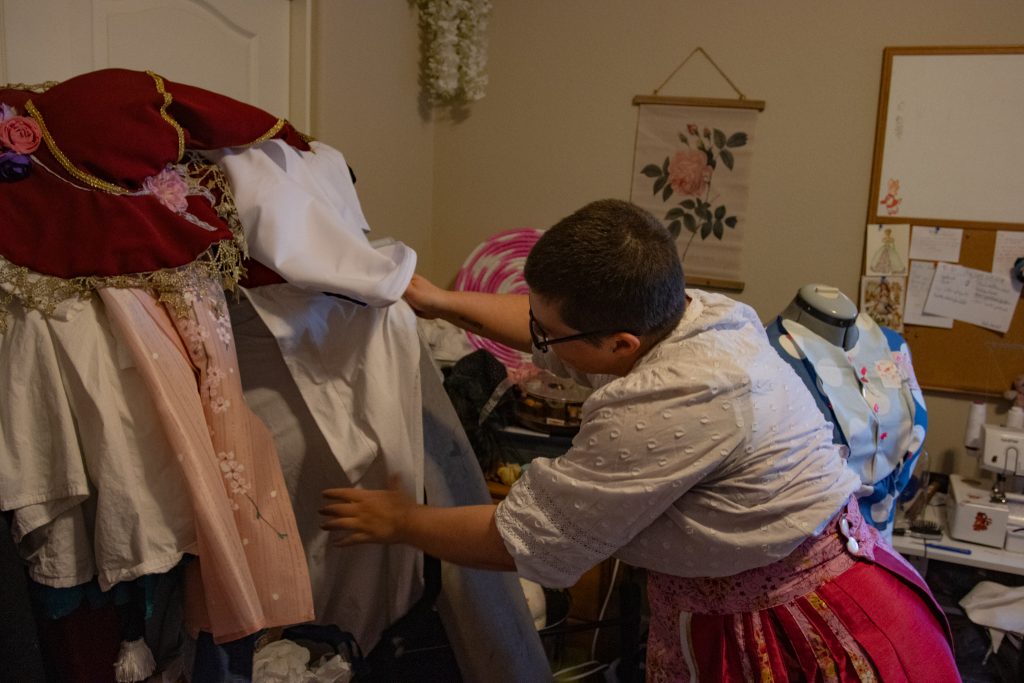
Caufield navigates the project heap.
Caufield, who uses both she and him pronouns, learned to sew back in her late teens: first from a grandmother, and then from trial-and-error with YouTube tutorials and sewing patterns. He never expected to do this as a living, even as he entered the art program at the University of Nevada, Reno.
“I always planned on it just being a hobby,” Caufield explained. “And then it was one of those things where it was stress relief for me for a while. It was always the answer whenever I was like, ‘man I wish I could be doing something else right now. I wish I could be at my sewing machine.’”
After Caufield switched majors from art into secondary education –– thinking it would be more practical –– she took a theater class for a diversity credit and loved it, but still didn’t let herself make the switch back to the arts.
“My [now] wife can attest: it was walking to where we parked in the parking garage and [I was] literally having a full-blown meltdown,” Caufield said. “Just crying, like, ‘I don’t want to do secondary education, I just want to do theater.’ I was constantly falling for that old, ‘Well if I’m going to college and spending money on a college degree, I should do something useful.’ But if I’m dreading going to class every day, or I’m dreading the thought of what might happen after I graduate, I’d rather not at all.”
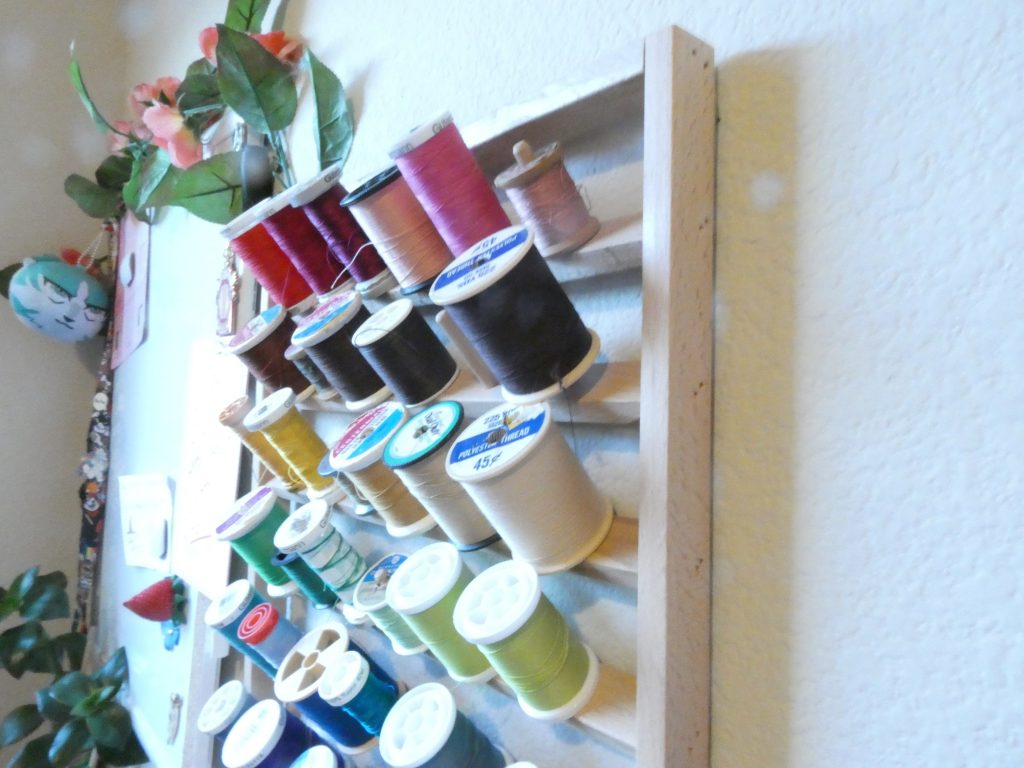
Dozens of colors for thread stand ready for use on one of Caufield’s many shelves.
Post-epiphany, it took Caufield another three years to graduate with a theater degree from the university. By then, he’d made costumes for almost all the department’s shows, he said –– and fell in love.
Caufield also started working with Good Luck Macbeth under Lyndsey Langdale, the local theater company’s costume director.
“It’s really good working with her both as an assistant designer and also just working in her space to see how theater costume design works in a smaller scale,” Caufield said. “UNR has a pretty extensive costume shop, whereas community theater like Good Luck Macbeth is going to be very like, ‘OK, what is the cheapest and quickest and easiest way to get our vision across without cutting corners?’”
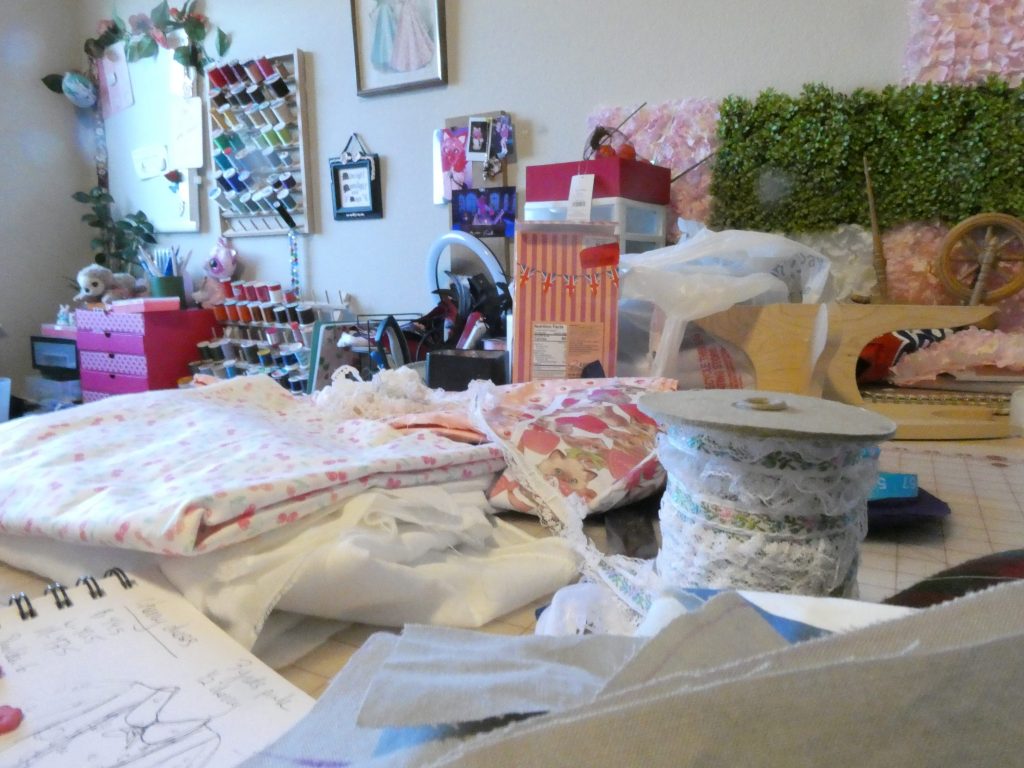
Heaps of project materials cover the workbench at the center of the studio. (Fabric and patterns are stored in shelves underneath.)
After a few years of working in a university lab full-time post-graduation, Caufield took a leap and withdrew the position’s retirement savings after she quit. That money became the basis of a one-person business that he still runs, Anything Sews.
“I was able to use that to really get it off the ground,” Caufield explained. “That paid for my first several craft shows, it paid to get a lot of the work done in my workshop and a lot of trial and error stuff.”
For a few years, Anything Sews paid the bills entirely. Caufield filled her entire week with commissions, constantly on the hunt for more. He even debuted a collection in “A Queer Fairytale,” a fashion show hosted by Good Luck Macbeth and funded by a Nevada Arts Council grant. But being a self-employed seamstress often isn’t about sewing, he explained.
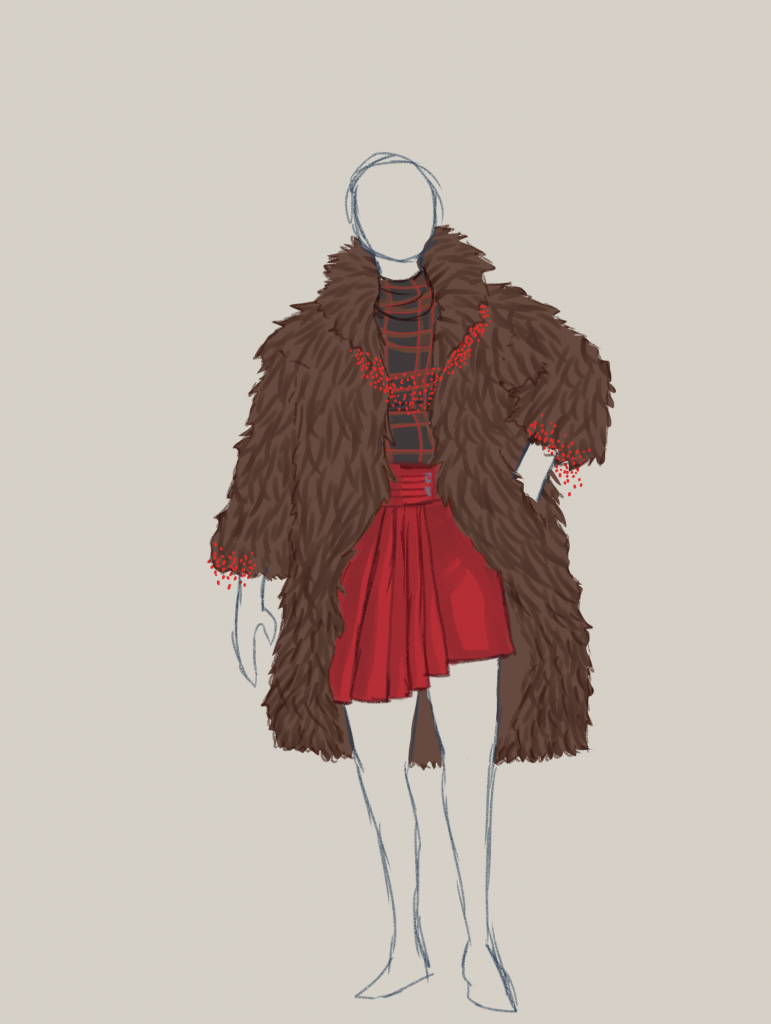
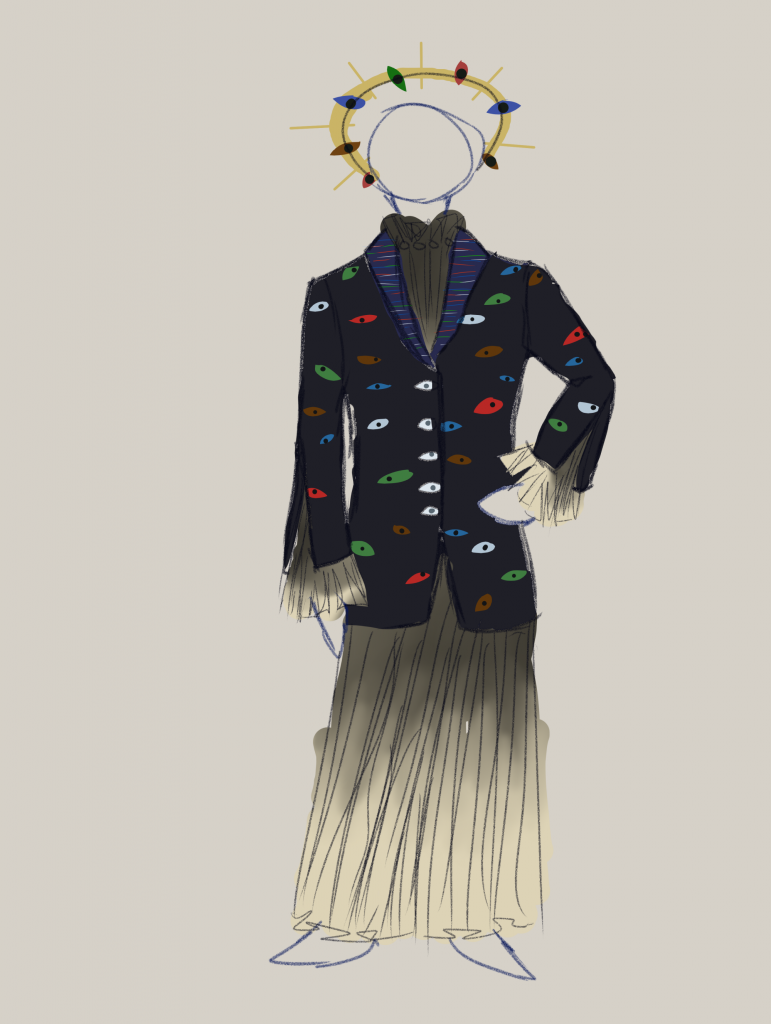
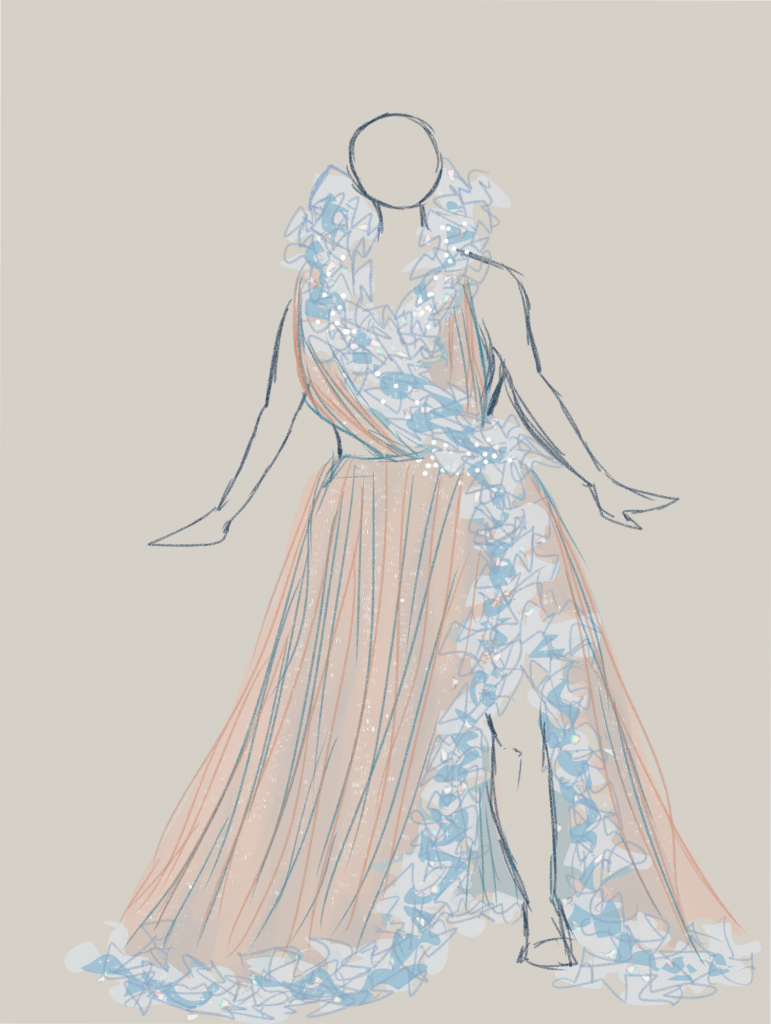
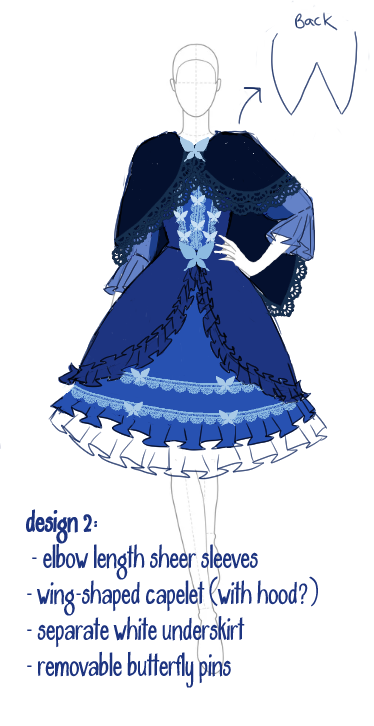
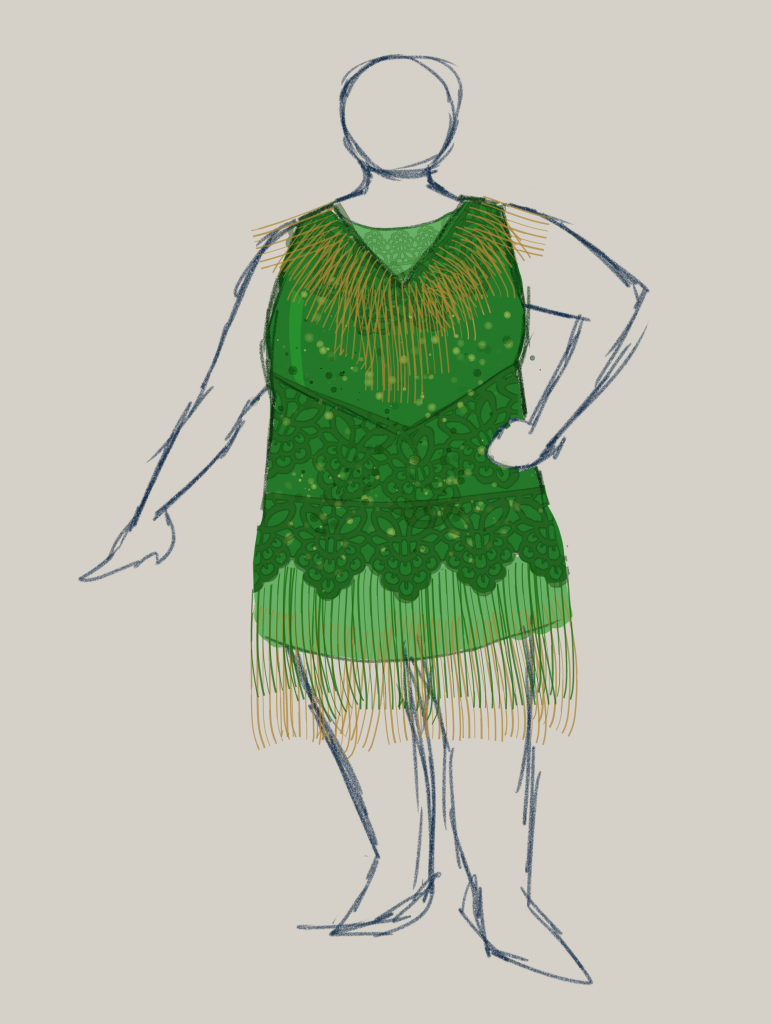
“It’s a lot of marketing, it’s a lot of admin work,” Caufield said. “And it’s a lot of, ‘Well, if I don’t have anything going on this month, what can I do to make sure I’m still bringing in the money, and what can I do to make sure I’m still paying bills?’”
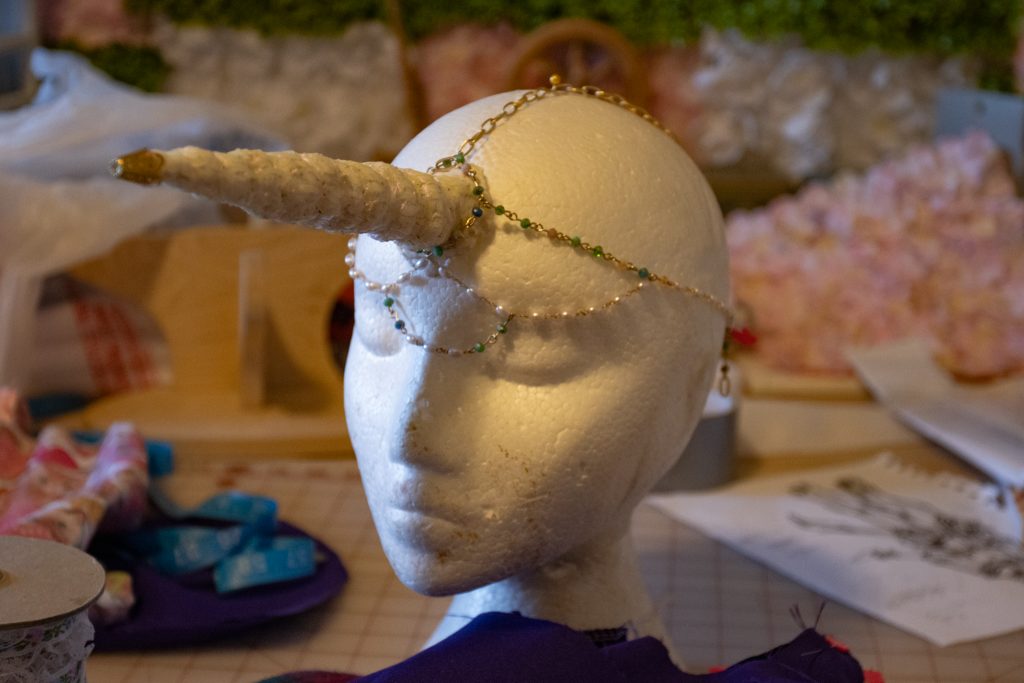
An accessory for an upcoming project.
Caufield eventually found a happier compromise with a full-time sewing job at a casino. It’s much more alterations-based, she said, and a more comfortable use of her skills than dreaming up bespoke costumes from scratch. Now, he focuses on a lighter creative load, spending less time in the studio.
“I’ve started figuring out what I can do at home,” Caufield added. “I bring a lot of hand sewing, a lot of painting and detail work, because then I can put on Netflix and chill with my embroidery hoop. I’m re-learning how to do it as a hobby, I think is the big thing now.”
It’s a hobby she recommends, especially for people who’ve never considered how much effort goes into the clothes they wear every day.
“For me, it’s a very technical process,” Caufield said. “But at the same time, being able to say I took that flat piece of whatever fabric and turned it into a wearable garment, it’s magic. It’s very hard magic, but it’s magic.”
Peregrine Hart can be reached at peregrineh@unr.edu or on Instagram via @pintofperegrine.
